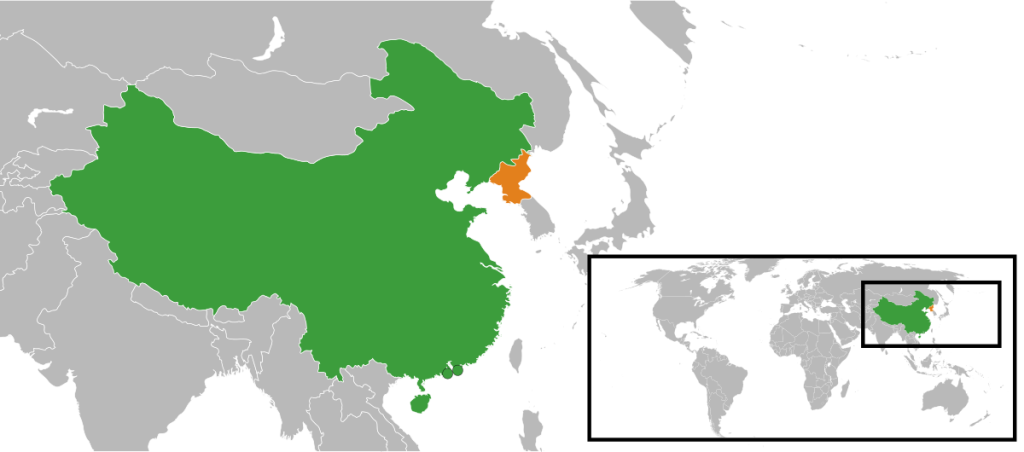
China is capitalizing on America’s retreat from democracy promotion in North Korea, using tech, media, education, and trade to subtly reshape its neighbour’s society. This quiet campaign aims to embed Chinese cultural norms and strengthen Beijing’s influence, filling the vacuum left by waning Western engagement.
China’s cultural outreach to North Korea reflects a calculated soft power offensive rooted in ideological manipulation. The “program for mutual cultural development and cooperation” is less about cultural exchange and more about psychological conditioning, orchestrated by CCP propaganda organs to engineer pro-China sentiment. By targeting vulnerable demographics, youth, border residents, and expatriates, Beijing seeks to embed its worldview within North Korean society. This strategy exemplifies the Chinese government’s broader pattern of exporting authoritarian influence under the guise of cooperation. It’s a subtle yet potent form of control, reinforcing China’s regional dominance while eroding North Korea’s cultural autonomy.
China’s strategy in North Korea is a calculated blend of soft power and psychological conditioning. By flooding the country with Chinese-made MP7, MP8, and MP5 media players, designed to evade detection, Beijing exploits North Korea’s censorship gaps to push curated cultural content. While framed as educational, these devices serve as Trojan horses for ideological influence, subtly embedding Chinese narratives into North Korean society. The CCP’s approach reflects a broader pattern of exporting authoritarian values under the guise of cooperation. By tailoring content in the Pyongyang dialect and saturating media channels, China isn’t just sharing culture, it’s engineering allegiance.
China’s media strategy in North Korea is a calculated flood of cultural influence. Rather than tailoring content to audience reactions, Beijing deploys a “culture bomb” approach, saturating the country with Chinese media to normalize its presence. With 88.4% of surveyed North Koreans citing China as their primary foreign media source, the tactic exploits a perception of safety compared to South Korean or Western content. Delivery is covert yet effective: USBs, SD cards, and MP5 players smuggled via traders. The aim isn’t passive consumption, its cultural conditioning. China wants its narratives embedded in daily life, subtly reshaping North Korean identity through repetition and familiarity.
China’s strategy toward North Korea is a masterclass in subtle domination. Through rotating faculty at Pyongyang University of Science and Technology and tailored online platforms, Beijing is embedding its intellectual framework into North Korea’s education system. Simultaneously, economic integration is deepening: rare earths flow to China, while semiconductors and displays flow back, aligning North Korea’s tech standards with Chinese norms. Infrastructure upgrades and encrypted payment systems further entrench this dependency. By tolerating smuggling and hosting sanctioned labour, China sidesteps global pressure while tightening its grip. These moves aren’t just cooperative; they’re calculated steps to reshape North Korea into a pliable satellite within China’s sphere.
China’s cultural strategy toward North Korea blends soft power with calculated border control. Rather than stopping defections outright, Beijing channels them to serve its interests, leveraging North Korean labour while preserving regime stability. Through mass distribution of Chinese media, it reshapes perceptions, encouraging defectors to settle in China instead of heading south. This “controlled aspiration” tactic subtly promotes Chinese identity while reinforcing border dominance. The goal: keep defectors within China’s orbit, limiting their exposure to democratic ideals and curbing their potential influence abroad.
China sees a strategic opening as the U.S. retreats from promoting human rights and democracy in North Korea. With Washington scaling back radio broadcasts and information campaigns, Beijing is poised to fill the vacuum becoming the dominant cultural influencer. This shift allows China to embed its narratives and values, using media and education as diplomatic tools. If North Korean youth and officials begin favouring China, Beijing could shape future policy alignments, turning cultural influence into geopolitical leverage at a critical moment. As Western nations retreat from democracy promotion in North Korea, China is quietly positioning itself as the dominant force shaping the country’s cultural future. By flooding North Korea with Chinese media and fostering ideological familiarity, Beijing aims to build a shared identity that dilutes historic ties with South Korea. If Seoul and its allies fail to counter this influence, China will fill the vacuum redefining North Korea’s cultural orientation on its own terms. This isn’t just soft power; it’s strategic reengineering. The battle for North Korea’s soul is underway, and the victor may determine the peninsula’s long-term alignment.
